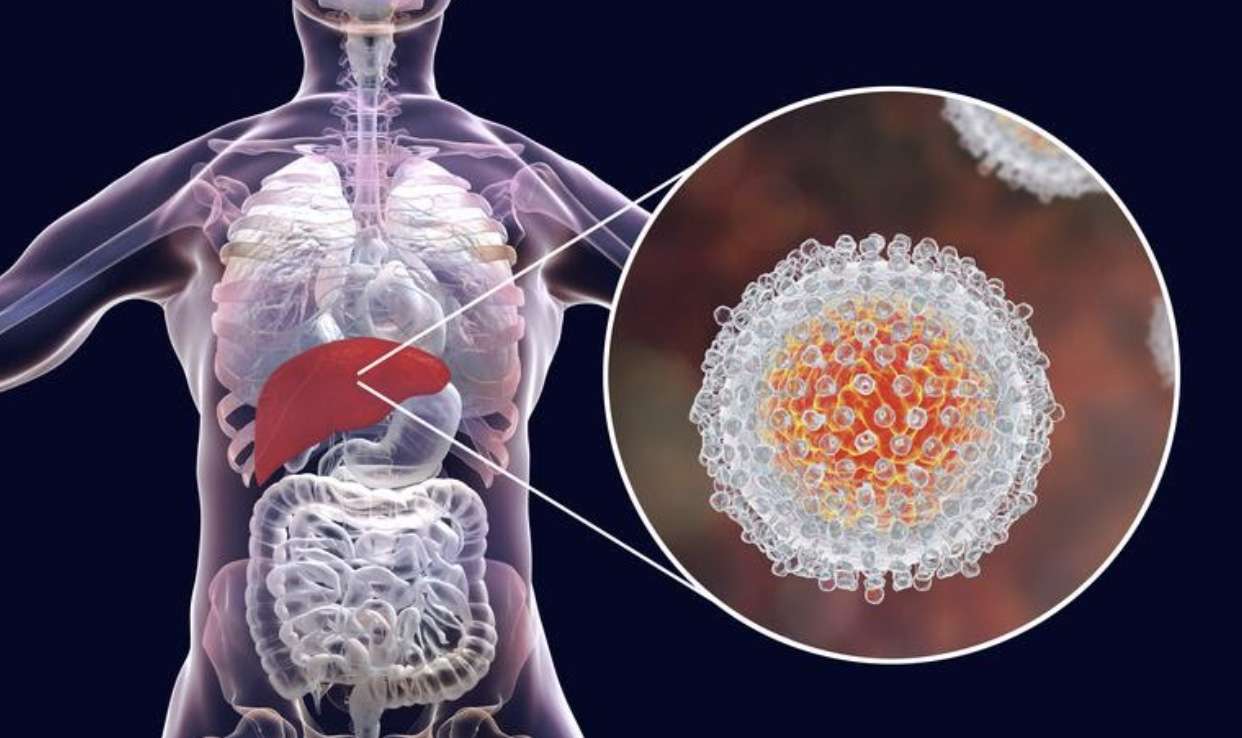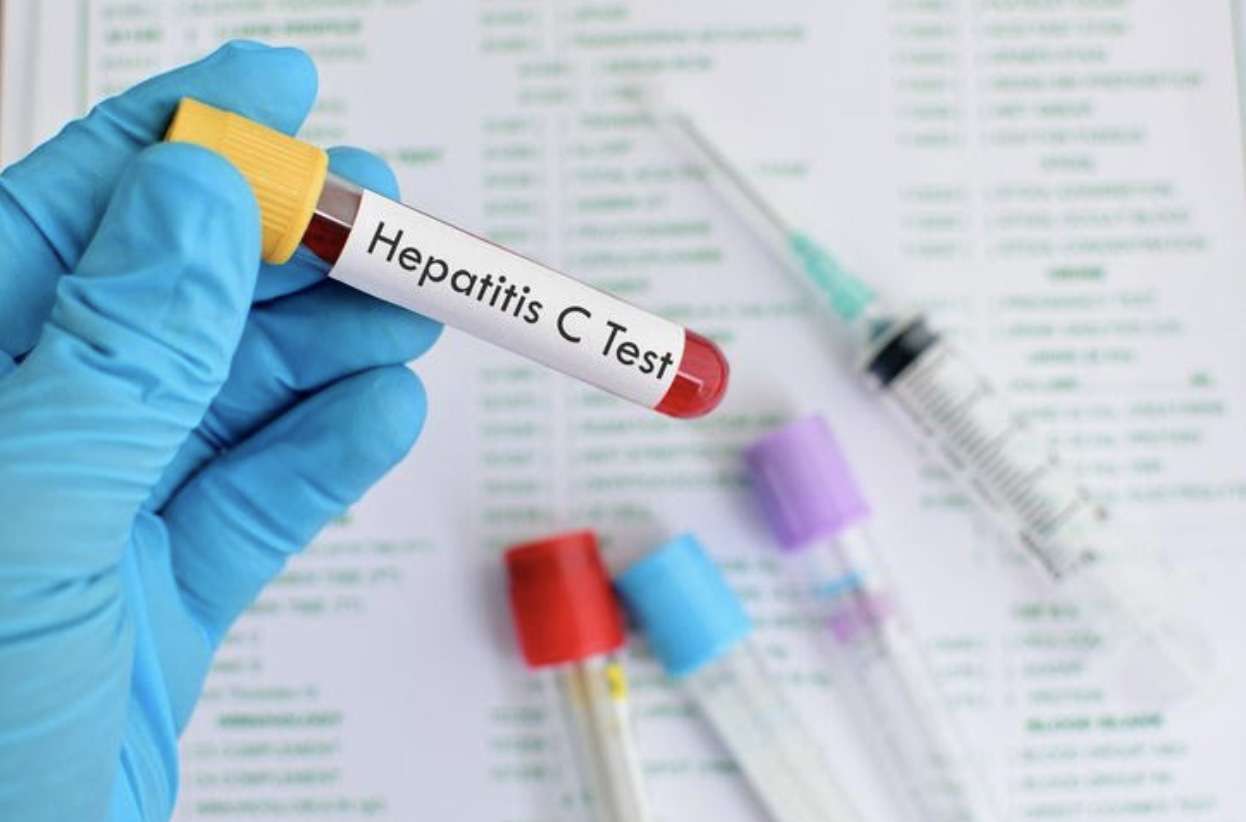What is Hepatitis C?
Hepatitis C is a liver infection that can result in severe liver damage. According to the Centers for Disease Control and Prevention (CDC), viral hepatitis is usually caused by a virus, but it may also be caused by excessive alcohol use, pollutants, some medicines, and certain medical diseases. It affects around 2.4 million individuals in the United States. The majority of individuals are uninformed of it because it has few symptoms. The virus is spread by an infected person’s blood or body fluids.

Difference between Hepatitis A, B, and C
Hepatitis A, B, and C are three distinct types of liver illnesses caused by three separate viruses. Despite the fact that they might induce comparable symptoms, they are distributed in various ways and have different effects on the liver. In most cases, hepatitis A is a transient illness. Hepatitis B and C can start as short-term infections, but the virus can stay in the body and produce chronic (long-term) illnesses in certain people. Hepatitis A and B may be prevented with immunizations; however, there is no vaccine for hepatitis C.
Acute and Chronic Hepatitis C
Hepatitis C can be either acute or chronic:
- Acute hepatitis C infection – is a virus that causes a brief infection. The signs and symptoms might linger for up to six months. Your body may be able to fight off the illness and the virus will eventually go completely. In the majority of cases, however, an acute infection progresses to a severe infection.
- Chronic hepatitis C infection – is a disease that lasts for a long time. It can persist for a lifetime if not treated, causing major health concerns such as liver failure, cirrhosis (liver scarring), liver cancer, and even death. With liver damage, you may need to undergo a liver transplant procedure.
Hep C Transmission
Hepatitis C virus infection (HCV) spreads through the bloodstream. The following are the most typical routes of transmission:
- In healthcare settings, the reuse or insufficient sanitation of medical equipment, particularly syringes and needles;
- The use of unscreened blood and blood products in transfusions; and
- Using injectable drugs via sharing injection equipment.
FAQs about HCV transmission (according to CDC):
- Is it possible to contract hepatitis C more than once?
Absolutely. Regardless if you recovered successfully from the virus, the chance of contracting the virus is still high. That is why Those who inject drugs and share needles, syringes, or other drug preparation equipment, as well as those who regularly receive hemodialysis, should be tested for hepatitis C.
- Is it possible for the hepatitis C virus to spread through sexual contact?
Certainly, although it is thought that the rate of infection via sexual intercourse is low. Males who have intercourse with other men, as well as persons who have several sex partners, have a sexually transmitted illness, engage in rough sex, or are HIV-positive, are at higher risk.
- Is it possible to contract hepatitis C after getting a tattoo or piercing?
Hepatitis C is not transferred within authorized, commercial tattooing establishments, according to research. Hepatitis C (and other infectious illnesses) can be transmitted in facilities that do not take the required precautions to prevent infection during tattooing or piercing. In jails and other unregulated situations, unregulated tattooing and piercing can put a person in danger of infection.

Hep C Affects All Ages
If you answer YES to any of the following, you’re more likely to contract hepatitis C:
- Have you ever injected drugs?
- Before July 1992, have you had a blood transfusion or an organ transplant?
- Have you been on dialysis for a long time?
- Were you born between 1945 and 1965 (baby boomer)?
- Have you been diagnosed with liver illness or have abnormal liver tests?
- At work, have you come in contact with blood or contaminated needles?
- Have you ever had tattoos or piercings on your body?
- Have you ever worked or lived in a jail or prison?
- Were you born to a hepatitis C-positive mother?
- Do you have HIV/AIDS?
- In the previous six months, have you had sex with multiple partners?
- Have you ever experienced a sexually transmitted infection?
- For men, have you had sexual intercourse with other men?
Hepatitis C Symptoms
Hepatitis C infects most people without experiencing any symptoms. Some patients who are infected with acute hepatitis C develop symptoms 1 to 3 months after being exposed to the virus. The following are some of the signs and symptoms:
- Easily bleeds
- Bruising is simple
- Fatigue
- Appetite problems
- Skin and eye discoloration in a yellowish hue (jaundice)
- Urine with a dark color
- Itchy skin
- In your abdomen, there is an accumulation of fluid (ascites)
- Leg swelling is a common ailment.
- Loss of weight
- Drowsiness, confusion, and slurred speech (hepatic encephalopathy)
- Your skin has spider-like blood vessels (spider angiomas)
Is it necessary for me to have a hep C test?
All individuals between the ages of 18 and 79 should be screened for hepatitis C at least once, according to doctors. Screening is the process of detecting an illness in persons who are asymptomatic. Hepatitis C is diagnosed by blood testing. Many persons with hepatitis C have no symptoms and are unaware that they have it. Hepatitis C may be diagnosed and treated using screening tests before it causes major health concerns.

Hepatitis C Testing and Diagnosis
Hepatitis C is diagnosed using your medical history, a physical examination, and blood testing. Your doctor may order further tests to examine your liver if you have hepatitis C. Doctors will first look for Anti-HCV — proteins called antibodies produced by your body when the hepatitis C virus is detected in your bloodstream. They normally appear 12 weeks after the infection has occurred.
Statcare offers full panel STD testing (that includes tests for Hep A, B, and C), hepatitis A and B vaccines, and hepatitis C treatment in all their health care facilities in NYC.

The following are examples of possible outcomes according to CDC:
Negative:
- An indication that you don’t have hepatitis C.
- You’ll need to get retested if you’ve been exposed in the past six months.
Positive:
- May suggest that you have antibodies to hepatitis C and have been infected at some point.
- To get more accurate results, you’ll need to do an antibody test.
Hep C Prevention
Take the following actions to avoid becoming infected with hepatitis C:
- Stop taking illegal substances, especially if you are injecting them. Seek treatment if you use illegal
substances.
- Tattoos and body piercings should be avoided. Look for a trustworthy professional if you decide to be pierced or tattooed. Inquire ahead of time about how the equipment is cleaned. Ensure that the personnel is using sterilized needles. Look for another business if the person refuses to answer your queries.
- Engage in protected sex. Don’t have unprotected intercourse with several partners or with somebody whose health is in question. Although sexual transmission between monogamous couples is possible, the risk is minimal.









